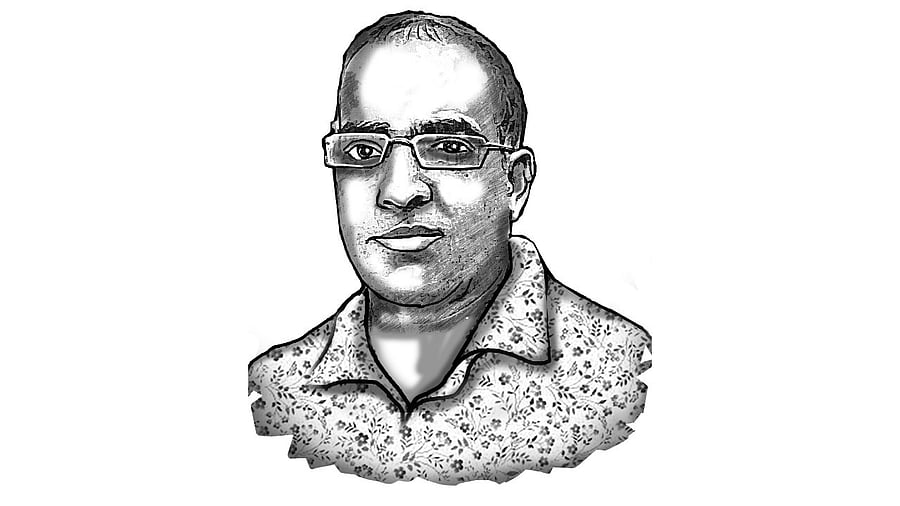
Ashwin Mahesh, asocial entrepreneur, founder of Mapunity and LVBL, and co-founder, Lithium, wakes up with hope for the city and society, goes to bed with a sigh  @ashwinmahesh
Credit: DH Illustration.
Where in India are citizens most actively involved in trying to improve their city and its governance? For quite some time now, Bengaluru has ranked reasonably high in answer to this question, and some might even say we’re #1. Across the city, individuals and groups do plenty of things that are in the public interest. In some cases, they’ve come together to build coalitions and federations for their advocacy and activism. There has also been a lot written about why this is so much a feature of the city; at least one recent book was entirely about this.
But is it working? Are the various neighbourhood ‘rising’ groups and the lake activists and waste warriors and apartment associations and RWAs adding up to what we all want the city to be? One self-evident answer is that without them, the city would be much worse. They are doing whatever they do without much support from the government -- and sometimes even hostility to their efforts. So it’s fair to say that it is working to ensure that things aren’t much worse, and that’s a small mercy.
But there is a limit to what can be achieved this way. I was reminded of this during a long conversation with a group of residents recently. They’re immersed in local problem-solving, and have brought various issues to the attention of their MLA and the BBMP, but they also felt they were hitting a wall in many of these efforts. What could be done differently?
There is no magic bullet, no certain answer to this question. But there are three pointers one can use to navigate our way forward. One, we need to accept the true nature of the problems we face and not reframe them in other ways; two, we have to anticipate others’ support and opposition for our solutions; and three, we have to also take interest in problems that don’t directly affect us. These are not entirely separate; instead, in each of them, one can find elements of the other two types, too.
A very large portion of the state of things in the city is the result of shrill politics, high inequality, and poor governance. The majority of solutions put forward by citizens’ groups and development organisations are technical and managerial. But such solutions can’t really get to the heart of problems that are social and political in nature. Unless we see things as they are, we are bound to be exasperated by what we see around us.
The second point follows logically from the first. Politics is a contested space, and in a contest, one has to take sides. Many interest groups and community organisations, however, believe that they should not take sides in electoral politics because that will make it difficult for them to work with whoever wins. This view is widely held, but simply wrong. Politicians who lose still have a lot of influence. In fact, nearly all the people who have any influence at all on governance are political in some way or the other.
Which brings us to the third part. Local communities and NGOs usually speak up about problems that affect them or the populations they serve. This is to be expected. People in a particular locality want things to improve in the area where they live. Each person in the development sector works on the purpose for which their organisation has been set up. But there must also be more. We have to care about improving neighbourhoods in general, not only ours. We have to care about governance in general, not only the governance of education.
This is not merely about having empathy, either. This is about building alliances to overcome hurdles. If we limit ourselves to working on issues that impact us, we’re also signalling a lack of interest in anyone else’s issues. The predictable reaction to that will be that others too will be uninterested in our problems, and that limits our ability to find allies among each other. Which in turn reduces the likelihood of getting to the solutions we want.
In my experience, both elected representatives and public officials respond far more favourably to those who accept the political and social nature of public problems, they don’t mind if people take sides, and they have some amount of respect for those who try to make others’ lives better. If we’re trying to be heard better by netas and babus, we should embrace these things. They won’t guarantee we’ll succeed, but without them we surely will not.